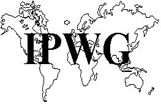|























|
 |
Abstract
Destructed / Reconstructed Balkans -
Global / Local strictures and the fission of space and place.
How does the road to a need of Social Reconstruction look? In the Federal Republic of Yugoslavia there was a space for all ethnic groups to place themselves in terms of identity, and a representation system in the federal construction based on territorial / ethnic representation. There was also a common ideological framework containing some form of legitimacy up until the 1980šs.
Central and Western Balkans at the turn of the millenium is marked by political, economic, and social instability, a paramount international attention and involvement including foreign military presence (NATO), international bilateral and multilateral aid, international NGOšs, international political institutions and regional bodies (OSCE, OHR) and private actors (Soros Foundation). The political and geographical map of this part of Europe is highly uncertain. It is even uncertain how many states there will be in the Balkans by the next decade.
International organisations and principles, political doctrines etc, have been fundamentally challenged by events at this corner of Europe. Foreign aid, international and national migration and refugee policies, NATO and EUšs military strategy and security identities, all being retested in relation to this. The Helsinki documents have been challenged by the recent NATO war on Yugoslavia and so on. While Western Europe is marked by a process of integration, in this part of Europe disintegration and ethnic nationalism is the trend.
To some extent the problems of Western Europe and SouthEastern Europe are the same: i.e the challenge of the sovereignty of the state, the problem of political representation, and the problem of collective identity. Still political and economic models for the region are export products from this same Western Europe which itself is in a process of changes and facing problems with the very same models (i.e civil society, election, multiparty system etc)
The processes and successive steps that have produced and paved way for the current situation in the Balkans are complex and does not allow themselves to be easily sketched. They include an economic, social, and institutional breakdown and reshaping and transformation, mutually intertwined, which in turn has resulted in political manouvres , animosities, and disasterous identity politics and ethnic clensing. The roots of the crisis may lie in complex internal processes, but which must be understood in a global context and within a macrostructural framework.
For the full text please contact the author !
|




